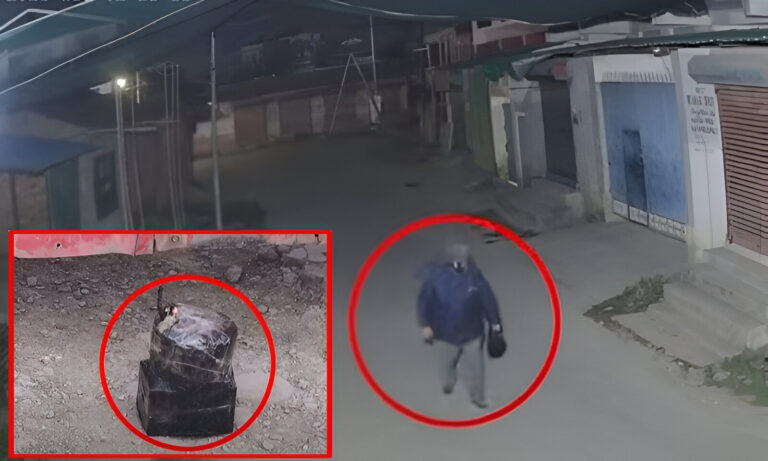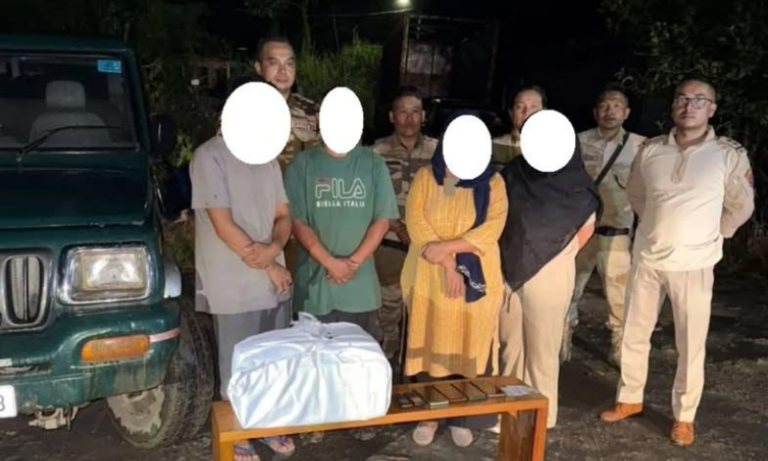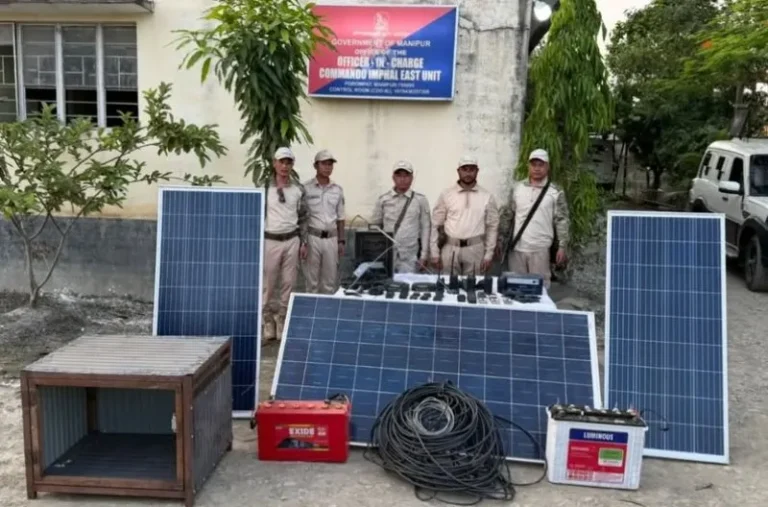Army Chief’s Statement Draws Sharp Reaction from Manipur Congress
Summary of the News Article
The Army Chief’s recent remarks regarding the crisis in Manipur sparked significant backlash from the Manipur Congress. The political party expressed dissatisfaction with the military’s comments, accusing the chief of undermining the local government’s handling of the situation. The Congress leadership argued that the statement worsened the already fragile situation, demanding a more sensitive and tactful approach to the delicate matter.
Army Chief’s Statement: Unpacking the Reaction from Manipur Congress
Introduction: A Tense Situation in Manipur
Manipur, a state in Northeast India, has long been mired in political turmoil, ethnic tensions, and insurgency-related issues. As these issues persist, various parties involved in both the governance and protection of the state have weighed in on the matter. However, a recent statement from the Army Chief has ignited a fresh wave of controversy, drawing sharp criticism from the Manipur Congress.
The reaction to the Army Chief’s remarks highlights the delicate political situation in the region and how various groups view the role of the military, government, and local political entities in resolving the ongoing crisis.
But what exactly did the Army Chief say, and why has the Congress reacted so strongly? Let’s dive into the unfolding story and explore the complexities that surround this controversy.
The Army Chief’s Statement: What Sparked the Backlash?
The Army Chief’s recent comments were directed at the ongoing crisis in Manipur, where the region has seen heightened ethnic tensions and violent clashes over the past several months. In his statement, the Army Chief outlined his perspective on the law and order situation, suggesting that certain political missteps may have contributed to the crisis. His remarks were interpreted by many, especially within the Manipur Congress, as a critique of the local government’s handling of the situation.
Though the Army’s role in Manipur has traditionally been that of a protector, focusing on counterinsurgency operations and maintaining peace, the statement was seen as overstepping boundaries, directly critiquing political governance. This blurred the lines between military and political roles, something the Manipur Congress did not take lightly.
Manipur Congress’ Reaction: Why So Strong?
The Manipur Congress’ sharp response to the Army Chief’s statement stems from several concerns:
- Undermining Local Governance: The Congress felt that the Army Chief’s remarks undermined the local government, which has been trying to resolve the crisis. They viewed his statement as an encroachment on political matters and a misrepresentation of the challenges that the state government faces in managing the unrest.
- Fueling Tensions: The political party also argued that such remarks, when made by high-ranking officials, risk further polarizing the situation. With ethnic tensions already high, the Congress believes that sensitive handling of the situation by all parties is necessary to avoid exacerbating the conflict.
- Questioning Military Neutrality: Another crucial aspect of their reaction was the question of the Army’s neutrality in this politically charged environment. The Congress criticized the Army Chief for seemingly taking sides and suggested that the military’s focus should remain on maintaining peace and security, not on political matters.
The Role of the Military in Manipur
To understand why the Army Chief’s statement caused such a stir, it’s essential to look at the role of the military in Manipur.
The Indian Army has long been a significant presence in the state due to ongoing insurgencies and ethnic conflicts. Manipur has seen decades of violence, with various insurgent groups demanding autonomy or separate states. To combat these insurgencies, the government has relied heavily on the military under the Armed Forces Special Powers Act (AFSPA), which gives the Army considerable power in the region.
However, the military’s role is intended to be one of maintaining peace and security, not influencing political discourse. The Congress’ strong reaction to the Army Chief’s statement underscores this distinction—arguing that the military should remain apolitical, especially in such a sensitive time.
The Broader Political Context: Manipur’s Fragile Situation
Manipur’s political landscape is deeply fragile, with ethnic tensions between communities such as the Meitei, Kuki, and Naga groups often escalating into violence. The state has struggled with issues related to land, political representation, and identity for years. The situation has only worsened in recent months, with the conflict drawing both national and international attention.
In this context, political dialogue, careful mediation, and maintaining law and order are seen as the most effective ways to address the crisis. The Congress party’s criticism of the Army Chief suggests that they believe such a statement risks disrupting the delicate balance that local leaders and communities are trying to achieve.
The Importance of Communication During Crisis
The backlash against the Army Chief’s statement also highlights the importance of communication during times of crisis. In politically volatile regions like Manipur, where emotions are already running high, the way in which officials—whether political or military—communicate can have significant consequences.
For the Congress, the Army Chief’s statement was seen as inflammatory and counterproductive, especially in light of ongoing peace-building efforts. Political leaders, civil society organizations, and even the military must all be mindful of how their words can either contribute to or undermine peace efforts.
Looking Forward: What’s Next for Manipur?
As Manipur continues to grapple with unrest, the need for peaceful resolution through political dialogue becomes even more critical. The Manipur Congress is advocating for a more sensitive approach to dealing with the crisis—one that involves all stakeholders, respects the boundaries between political governance and military roles, and promotes unity rather than division.
The Congress’ sharp reaction to the Army Chief’s statement serves as a reminder of the fragile situation in the state and the need for all parties to work together constructively. Moving forward, it’s likely that the call for inclusivity in dialogue, respect for local governance, and a focus on de-escalation will be central to any long-term solution.
The Role of Civil Society in Peacebuilding
While the government and military play key roles in addressing the situation in Manipur, civil society organizations are equally important. Grassroots movements, local NGOs, and community leaders can act as intermediaries, helping to bridge the gap between political actors and the people on the ground.
Civil society groups often have a better understanding of the local dynamics at play and can facilitate dialogue between conflicting groups. They also provide essential services such as trauma counseling, conflict resolution training, and support for those affected by the violence. Their role in peacebuilding is crucial, especially when trust in political or military institutions may be low.
Conclusion: Navigating Manipur’s Political Landscape
Manipur’s political crisis is complex, with ethnic tensions, insurgency, and political instability all contributing to a volatile situation. In this context, the backlash from the Manipur Congress to the Army Chief’s recent statement highlights the need for clear boundaries between political governance and military intervention.
Political dialogue, inclusivity, and respect for local governance are essential to finding a lasting solution to the crisis. As the state continues to navigate these challenges, the role of civil society, grassroots movements, and careful communication will be critical in building a peaceful and stable future for Manipur.
FAQs
- What did the Army Chief’s statement say about the crisis in Manipur?
The Army Chief made remarks suggesting political missteps had contributed to the ongoing unrest, sparking criticism from the Manipur Congress. - Why did the Manipur Congress react so strongly to the statement?
The Congress felt the Army Chief’s remarks undermined the local government’s efforts and could further inflame tensions in the already fragile situation. - What role does the military play in Manipur?
The military has long been involved in maintaining law and order in Manipur due to insurgencies but is expected to remain apolitical and focused on peacekeeping. - What are the core issues behind Manipur’s crisis?
The crisis stems from ethnic tensions, disputes over land and autonomy, and political power struggles between communities such as the Meitei, Kuki, and Naga groups. - How can the situation in Manipur be resolved?
The solution likely lies in political dialogue, inclusive governance, and involving all stakeholders, including civil society, in peacebuilding efforts.


